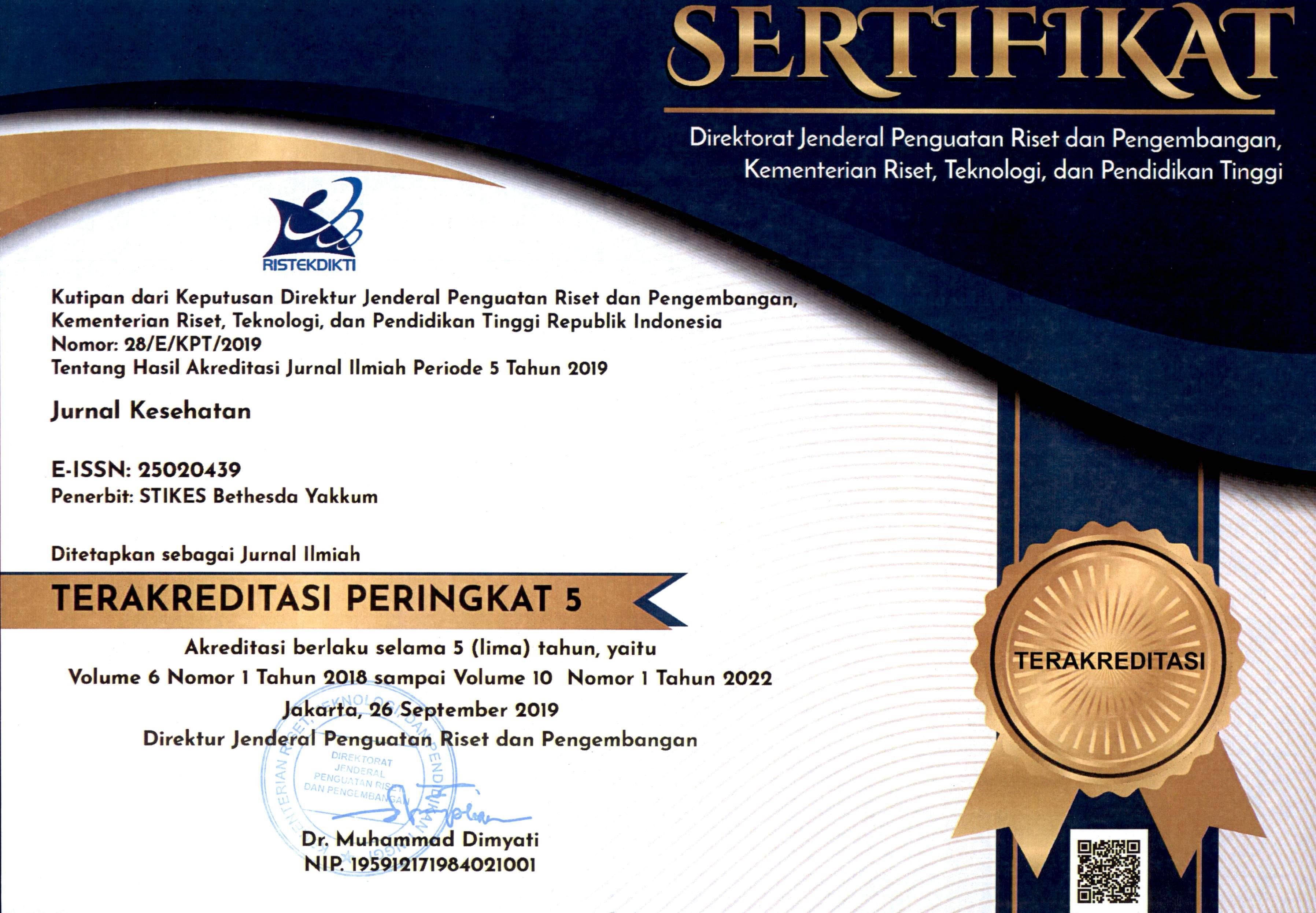KEPUASAN DOSEN DAN MAHASISWA DALAM PELAKSANAAN PEMEBELAJARAN DARING SELAMA MASA PANDEMI COVID-19
DOI:
https://doi.org/10.35913/jk.v8i2.204Keywords:
Satisfaction, Online Learning, Covid-19., satisfaction, online learning, Covid-19 pandemic.Abstract
Background: Online learning is a distance education activity where the teaching-learning process is carried out remotely using various communication media (PERMEN RISTEKDIKTI RI, 2018). The online learning method aims to equalize access and quality of education for students in the era of the digital industrial revolution 4.0, as well as it becomes exciting new method because it is very accessible yet familiar (SPADA Indonesia, 2019). The satisfaction of lecturers and students in this method of online learning is an interesting issue. In addition to the update matters that must be implemented because of the Covid-19 Pandemic situation, lecturers and students who are accustomed to offline or face-to-face learning methods need to make adaptations to online learning. Objective: This research aimed to find out the satisfaction of lecturers and students in the implementation of online learning during the Covid-19 pandemic. Method: This research was an analytical descriptive study with a quantitative approach. Respondents in this study consisted of 37 lecturers and 199 students with purposive sampling methods. Satisfaction surveys were applied as instruments in this study. Result: In the case of lecturers, respondents claimed that they were satisfied at the aspect of Tangibles at rate of 92%; Responsiveness at 94%; Assurance at 62%; dan Emphaty at 94%. Meanwhile, in students’ side, respondents were satisfied at aspects of Tangibles at rate of 43%; Reliability at 64%; Responsivenes at 92%; Assurance at 67%; dan Empaty at 93%. Conclusion: Lecturers and students have the same satisfaction in responsiveness (responsive attitude) and empathy (attentiveness) aspects, as well as dissatisfaction with aspects of tangibles (facilities and infrastructures), reliability aspects (reliability of resources), and assurance (reassurance) aspects.
Key Words: satisfaction, online learning, Covid-19 pandemic.
References
DAFTAR PUSTAKA
Adijaya, N., & Santosa, L. P. (2018). Persepsi Mahasiswa dalam Pembelajaran Online. Wanastra, 10(2), 105–110. https://doi.org/2579-3438
Anderson, T. (2008). The Theory and Practice of Online Learning (Second Edi; T. Anderson, Ed.). Edmonton: AU Press.
Burhan, E., Isbaniah, F., Susanto, A. D., Aditama, T. Y., Soedarsono, Sartono, T. R., … Agustin, H. (2020). Pneumonia COVID-19?: Diagnosis & Penatalaksanaan di Indonesia. In Journal of the American Pharmacists Association (Edisi Pert, Vol. 55). https://doi.org/10.1331/JAPhA.2015.14093
Cennimo, D. J., Bergman, S. J., & Olsen, K. M. (2020). Coronavirus Disease 2019 (COVID-19): Practice Essentials, Background, Route of Transmission. Retrieved April 11, 2020, from Coronavirus Disease 2019 (COVID-19) website: https://emedicine.medscape.com/article/2500114-overview
Dharma, Kelana Kusuma. (2011). Metodologi Penelitian Keperawatan: Panduan Melaksanakan dan Menerapkan Hasil Penelitian, Jakarta, Trans Info Media.
Harususilo, Y. E. (2020, March 20). Nadiem Ajak Guru dan Dosen Juga “Work from Home”, Mengajar dari Rumah. Retrieved April 12, 2020, from Kompas Edukasi website: https://www.kompas.com/edu/read/2020/03/20/145705271/nadiem-ajak-guru-dan-dosen-juga-work-from-home-mengajar-dari-rumah
Karuniawan, A., & Cahyanti, I. Y. (2013). Hubungan antara Academic Stress dengan Smartphone Addiction pada Mahasiswa Pengguna Smartphone. Psikologi Klinis Dan Kesehatan Mental, 2(1), 1–6.
KEMENKES RI. (2020a). Pedoman Pencegahan dan Pengendalian Coronavirus Disease (COVID-19) (Revisi Kee; L. Aziza, A. Aqmarina, & M. Ihsan, Eds.). Jakarta: Kementerian Kesehatan RI.
KEMENKES RI. (2020b). Situasi Terkini Perkembangan Coronavirus Disease (COVID-19) 5 Mei 2020. Retrieved May 6, 2020, from Public Health Emergency Operating Center (PHEOC) Indonesia website: https://covid19.kemkes.go.id/situasi-infeksi-emerging/info-corona-virus/situasi-terkini-perkembangan-coronavirus-disease-covid-19-5-mei-2020/#.XrIpPqgzZjU
Kementrian RISTEKDIKTI. (2016). Kebijakan Pendidikan Jarak Jauh dan E-Learning di Indonesia. E-Learning Indonesia, 1–21. Retrieved from http://kopertis3.or.id/v2/wp-content/uploads/Paulina-Pannen-Kebijakan-PJJ-dan-E-Learning.pdf
Kementrian RISTEKDIKTI. (2019). PJJ, E-Learning & Blended Learning. E-Learning Indonesia, 1–46. Retrieved from http://bppsdmk.kemkes.go.id/pusdiksdmk/wp-content/uploads/2019/06/PJJ-E-Learning-Blended-Learning.pdf
Notoatmodjo, S. (2010). Metode Penelitian Kesehatan. Jakarta: Bineka Cipta.
Notoatmodjo, S. (2012). Metode Penelitian Kesehatan. Jakarta: Bineka Cipta.
PERMEN RISTEKDIKTI RI. (2018). Peratuan Menteri RISTEKDIKTI RI No 51. (51).
Setiadi. (2013). Konsep dan Praktik Penulisan Riset Keperawatan edisi 2. Yogyakarta. Graha Ilmu.
Sugiono. (2007). Metode Penelitian, Pendidikan, Pendekatan Kuantitatif, Kualitatif dan R&D. Bandung. Alfabeta.
Sugiono. (2010). Metode Penelitian, pendidikan, pendekatan kuantitatif, kualitatif dan R&D. Cetak kesembilan, Bandung; CV. Alfabeta.
Sugiyono. (2011). Metode Penelitian Kuantitatif Kualitatif. Bandung: CV Alfabeta.
Sugiyono. (2015). Metode Penelitian Kuantitatif, Kualitatif Dan R&D. Jakarta: Alfabeta.
SPADA Indonesia. (2019). Panduan Proses Pembelajaran Daring SPADA 2019. Panduan Kementrian RISTEKDIKTI, Volume ket, 1–39.
WHO. (2012). Background and summary of novel coronavirus infection. Emergencies Preparedness and Response. Retrieved from https://www.who.int/csr/disease/coronavirus_infections/update_20121221/en
WHO. (2020). Coronavirus disease (COVID-19)?: situation Report - 106. In Wolrd Situational Report COVID-19 (Vol. 106). https://doi.org/10.1001/jama.2020.263









